Georges Niang: ‘It’s been an up-and-down roller coaster, but I wouldn’t want it any other way’
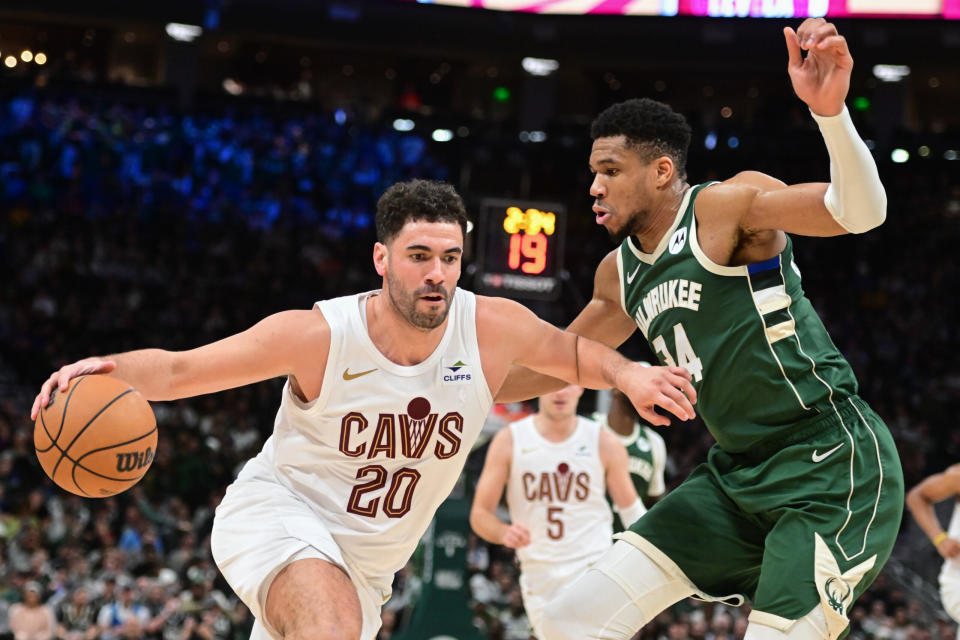
Georges Niang, the Cleveland Cavaliers veteran known for his marksman ability from deep, recently sat down with HoopsHype to discuss his current season, evolving his game from college to the NBA, being Joel Embiid’s teammate, and experiencing the inaugural In-Season Tournament.
Can you share your journey from Lawrence, Massachusetts, to Iowa State and your NBA career?
GN: It’s kind of been crazy. I first started growing up in Methuen, Massachusetts, right next to Lawrence. I loved all sports growing up, played basketball early on, and gradually got better. I went to a boarding school, The Tilton School, where I was fortunate enough to play with other high-level talented guys like Wayne Selden, Alex Oriakhi, Nerlens Noel, and a bunch of others. We played a high-level schedule, and I was lucky enough to receive a high-major offer, although not from any high-major school close to where I live. So, that’s the reason why I had to go to Iowa State. It turned out to be the best decision I ever made. I was embraced and loved in a community where the school meant everything to them. It was an amazing journey that jolted me into the next phase of my life – my NBA career.
People don’t realize that once you finish up in college, nobody really cares about what you’ve done in college when it comes to the professional level. I had to start all over again; I was cut from the Indiana Pacers after being drafted 50th. After one year, I played in the G League with the Santa Cruz Warriors and then signed a two-way deal to Utah. Now, I’m traveling all over the country. Eventually, I signed a three-year deal with Utah. After that, I signed with Philadelphia, and now I’ve just signed with Cleveland. It’s been an up-and-down roller coaster, but I wouldn’t want it any other way. I’ve had to earn every bit of what I’ve achieved up to this point, and it’s made me appreciate the ride even more.
How would you credit being coached by Fred Hoiberg, who played and went on to coach in the NBA? Did it help you get prepared for what to expect in the NBA?
GN: Yeah, it definitely helped. The things that Fred [Hoiberg] was good at emphasizing were making you understand reads. Not just a “Hey, if I’m running this play, the ball has to get here”; it was more or less about what you should be looking for when you’re out on the court. What do you see? What reads can you make? If you see X, Y, or Z, that resonated with me. I’ve never been the most athletic guy on the floor, so I’ve had to use my mind to beat guys. With him being such a brainiac and a genius in running plays and schemes, we thought on the same level, and it allowed me to grow under him.
He’s played 10 years in the NBA and has worked in the front office, so he knows what NBA teams are looking for. Having him as a guiding hand to show me what I needed to be ready to play at that level was huge for me and my future development as a college player. Many college players do not get that if they don’t have someone who has coached in the NBA. That being said, there are a lot of great coaches out there who do different things in college to help guys get to the NBA, but this was huge for me just having someone who had been there and could show me the ropes of what I needed to do, what I required to focus on, and what things I needed to be looking for on the court to make it to the next level.
Do you think Fred Hoiberg was better suited for the NBA or college?
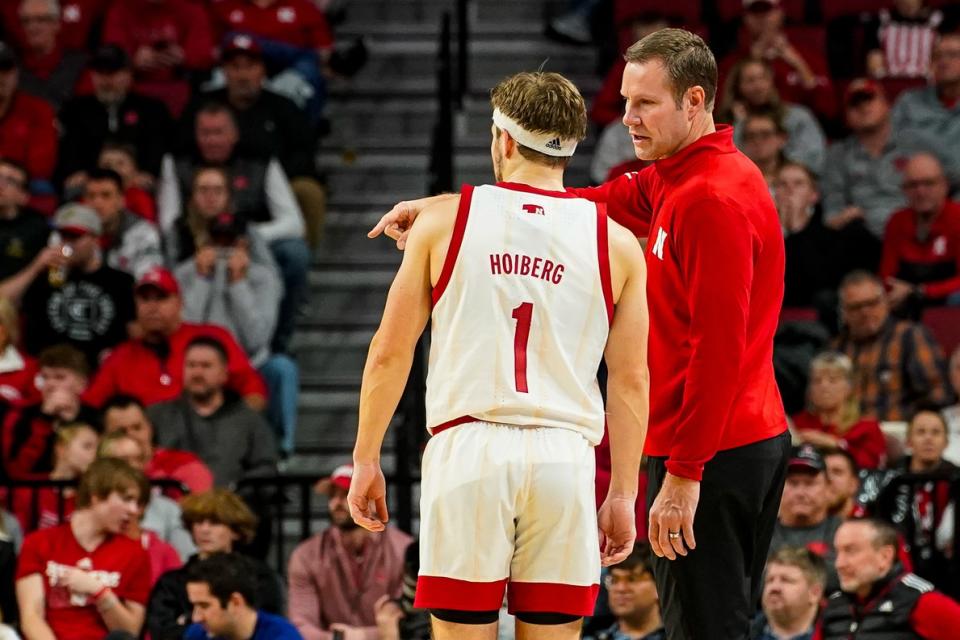
GN: That’s tough. I’ve always been a firm believer that timing is everything, right? Hoiberg walked into a challenging situation where [Tom] Thibodeau had built it up, not as high as it could be, but every team has a life. I’ve realized that every team I’ve been on is always trying to move pieces because they think they must find a way to win with the same team returning. You always have to look to improve. Fred can coach at any level; it’s just a matter of having the right pieces and timing. He was coming from college, where I’m sure NBA guys weren’t watching Iowa State and what Iowa State had done. So, you have to win over your guys, honestly. Once you do that, you have to start winning games. In this league, people know you don’t stay long if you don’t win. So he can coach at any level. It’s all about timing and situation, and he’s doing a great job now at Nebraska. They just beat Purdue, and he’s done a fantastic job there. I’m super happy for him.
How challenging was the transition to the NBA and having to evolve your game?
GN: I had to completely change my game. I had to ensure that I was making corner threes and not allowing my opponent to score on me. In college, I could bring the ball up, spin, dribble, pump, fake pass, get the ball back, be in the lane, and post up. In the NBA, that wasn’t the case at all. It was humbling, and many people aren’t willing to be humbled. They’re like, “This is my game; you’re not letting me play my game?” Well, they’re not here to make amends for your game; they’re here to win games. So, I had to figure out effective ways to stay on the court, and making three-point shots has been the one that has kept me in the league. That’s what I’ve tried to do night in and night out – shoot at an elite level. And focus on playmaking when people take away my shot. However, it was tough at first. I didn’t know that I would have to change my game when I was in Indiana. I was constantly thinking, “When will I get my shot to do what I do?” Then, I slowly realized that if I wanted to stay longer and continue to have this job, I better start finding ways to be effective, stay on the court, and not worry about my game. I needed to focus on what I could do to help the team.
What was your experience with Doc Rivers?
GN: It was great, you know. He allowed me to grow and flourish. And, you understand, expand my game, whether that was continuing to play-make or putting the ball in the floor to go score at the rim. He helped me tremendously, and I’m super thankful for that because, without that belief and that opportunity, the next phase of my career may not have been able to happen. So, my experience with Doc Rivers was awesome. There’s a lot of flack and slander on our 76ers’ team because we didn’t make it past the second round. But, you know, injuries are a real thing in the NBA. We never got to have a healthy Joel Embiid. And obviously, we had an opportunity to close it out at home, and we didn’t do that. And that’s on us as players; we could have been better. But you know, such is life. Things happen, and you’ve got to continue to grow and move on. But that doesn’t negate that he was a great coach for us and what we had going on.
What is one of the strengths of Doc as a coach?
GN: Yeah, he’s an extremely smart basketball coach and an extremely good motivator. You know, the way he can motivate a group, I don’t care who it is in a locker room, you’re going to be motivated to go out there and play, and he’s always putting you in positions to win. That’s one thing that’s for sure. You’re always going to be prepared to go out there and have the best game plan to win and be motivated, that’s for sure. I mean, if he’s talking, you’re listening.
How was it transitioning from playing with the reigning MVP to a younger Cleveland Cavaliers team?

GN: The only difference is we’re just younger; we still have championship aspirations. I was with an older team when I was with the Sixers, and now we’re just a younger team here in Cleveland. The guys are incredibly talented. Obviously, Joel Embiid is an MVP candidate. You don’t come across those types of players on every team, but at the same time, we have talented guys. We’ve done a good job of battling through injuries this year. Currently, we’re fourth in the East, missing Darius Garland and Evan Mobley for the last two months. What we’ve been able to do has been remarkable, and it shows the depth of this team and how talented we are. As for it being a tough change, it wasn’t at all. It’s been exciting and rejuvenating to be around young guys that are hungry and thirsty to win and bring a championship back home to Cleveland.
Why’d you choose Cleveland, did you have any other offers you considered?
GN: A couple of teams pursued me, but the opportunity to play back with Donovan [Mitchell], which I’d played alongside him in Utah, and then to play alongside other young talented pieces. I wanted to be a part of something that had a chance to win for a long time. And I looked at our young talent’s age and progression here. It feels like we will be winning here for a long time. So I’m super excited to be a part of that, and we have opportunities to continue to grow here and win.
How does it feel to assume a leadership role and become one of the experienced veterans in the locker room?
GN: It’s definitely a unique situation. You go from being someone who looks up to veterans to becoming the veteran. Besides Tristan [Thompson], I’m probably the oldest one on the team. And, you have to act as such; there are some things that you’re not allowed to get away with, whether it’s childish things during shootarounds in practice. You kind of have to hold yourself to a higher standard because not only are people listening to you, but they’re also following your lead with your actions.
So, I think it’s a pretty unique situation, but it’s a learning experience for me, and I believe it will continue to help me in moving forward in my career. I love helping these young guys with anything they need to help the team win. As I said, I’m extremely excited to be a part of a team with such a young core group that will be good for a long time. If I have to be looked at as the OG or the veteran, I’ll take it.
Do you think there are a lot of distractions for today’s NBA players?
GN: I try to let people do their own thing because sometimes it works for some, and sometimes it doesn’t. It doesn’t really work for me; I hate taking a whole cell phone selfie with the basketball or telling people I just worked out because that’s not what it’s about. I’ve always been a firm believer that what’s done in the dark will show in the light. I will put in the work, and I don’t need to tell everybody that I’m doing so. But, to some extent, I agree. Hurting the youth is something I’m concerned about. I don’t want to see the purity of this game ever diminished because people are doing it for views or personal accolades rather than going out there to compete, win championships, and simply enjoy the game. It’s not just about how many clicks or views they can get on social media.
Do you think NBA players basketball IQ is where it should be, or is it lacking?
GN: The league is really young. We have kids coming from various places, such as OTE, G League Ignite, and NBL’s Rising Stars. They’re coming from these other professional leagues and entering the NBA, and the NBA is the NBA. There’s no real simulation for it besides the G League. So, it’s understandable that learning takes time. I dislike it when people say ‘that learning isn’t catching up with age or that ages aren’t catching up with learning.’ Just for the simple fact that some guys will get it, and some guys will never get it. If you don’t get it soon enough, you’ll be out; if you do, you’ll stay in for a long time. There’s nothing more rewarding than seeing someone who’s athletically gifted and has been in the league since a young age, and then it clicks for them because it all comes together. That’s when you have All-Star superstars and generational talents. It’s super rewarding. There are phenomenal role players that took a little while to get it to click, but the league is in a great space at the end of the day. Basketball IQ is one thing, but when you have natural talent, sometimes that can make up for the lack of basketball IQ.
Given your observations of the current state of the NBA, do you believe that the league is experiencing increased parity?
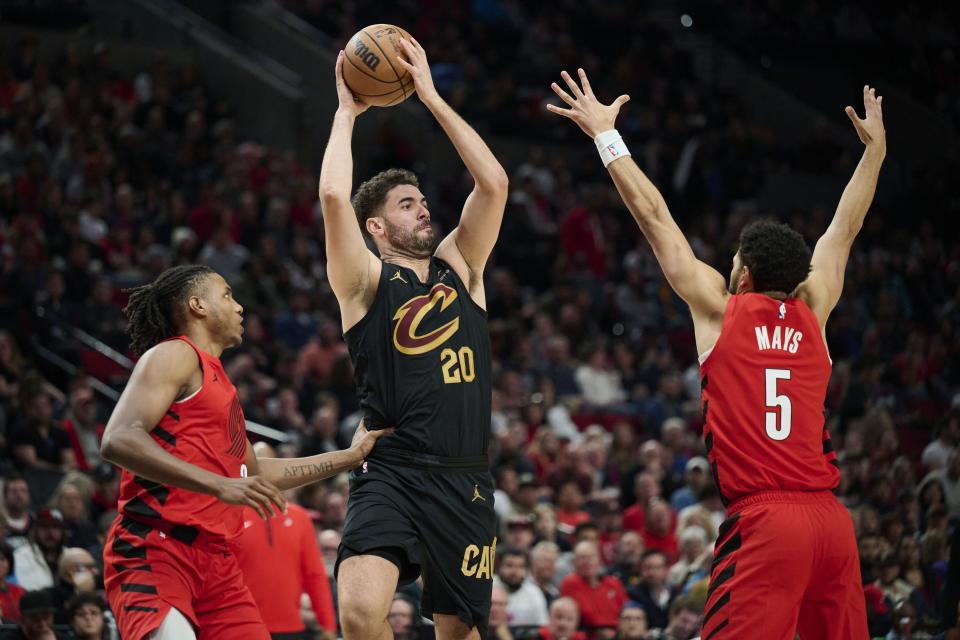
GN: If you look at last year, Milwaukee was at the top, and they lost to the Heat. The Heat said, “Alright, what are we doing here?” They’re still figuring things out, even now. And then, if you head over to the West Coast, you’ve got Sacramento, Golden State, and New Orleans as teams to watch out for. Denver is a strong contender, and OKC is making strides. Minnesota has another team to keep an eye on. So, it’s all up for grabs. The regular season is entirely different from the playoffs. Once you make the playoffs, it’s a different level of basketball – intense, where every possession matters. During the regular season, with so many games, injuries and absences happen. However, I do think the field is wide open. There are several teams with a real opportunity to compete for a championship this year.
Who's the hardest person to guard currently in the NBA?

GN: Whenever you see players like LeBron James, Giannis, Luka Doncic, Joel Embiid, Jayson Tatum, Jaylen Brown, and even Shai Gilgeous-Alexander at this point, and Nikola Jokic – there are just so many stars and talented players in the league right now. From one through ten on each side, there’s always someone who makes you go, “Damn, they could give us a lot of problems.” The league is in a really good spot with the mix of young talent and the experienced players who continue to impress.
What were your thoughts on the NBA In-Season Tournament? Was it gimmicky?
GN: The In-Season Tournament was intense, and it gave off a good feeling. The season does get long. At the start of the season, you think, “Well, we have a long way to go,” and everyone is kind of feeling each other out. There’s a lot of time to make up ground, but when it comes to the end-season tournament, that’s where it gets real – for money and a championship. The coolest part is that the NBA has created something that makes these games intensely competitive early in the season, allowing teams to compete for something meaningful. It has undoubtedly helped with viewership, and players are motivated to participate and bring home a championship in these games.
What was the initial experience during the first game?
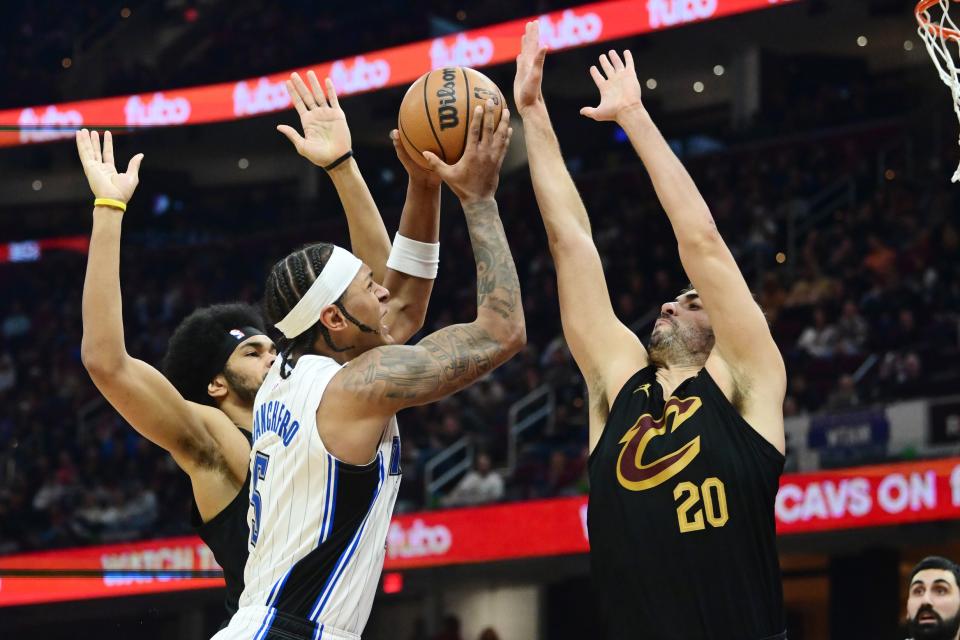
GN: Well, in the first one, nobody really understood how big it was going to be. After realizing the positioning and having only three other games to make it up, people were like, ‘Okay, let’s go.’ I think next year, people will really understand the point system, the importance of positioning, and the advantage of playing road games and home games. You want to take full advantage of that. So I’m excited, especially to see how it is next year. That should be really exciting.
Was it confusing to understand? How would you improve the In-Season Tournament if the NBA asked you?
GN: I would almost want to extend it to like six games because it was just super intense, maybe a three or four-week stretch. Sometimes, you would have to play In-Season Tournament games each week. But at the same time, I felt like I had a pretty good understanding of what was going on. They explained it to us, the point differential – something that a lot of people don’t understand. Some folks didn’t get it, even those I grew up with in AAU tournaments where point differential was a thing. So, maybe that’s something to consider. Do you change it so that when teams are down by 20, they’re not forced to go up against another team’s starting five just to reach a 35-point differential? I don’t know. But I think, as a good foundation, the In-Season Tournament was a huge success, and I would love to continue to see it and be a part of it.
How was playing on the courts, would you keep them?
GN: I think it adds an element where people turn on the TV to see it, and I think it’s pretty cool. It adds flair, and I believe the league needed that, especially early in the season when there was so much basketball to be played, and the playoffs were still a long way away. These intense games are good.
Was there any truth behind some of the courts being defected, containing dead spots or having too thick of paint?
GN: I only got to play in two of them – Philly and Indiana. Other than that, those two were fine. The court in Indiana looked like the Cookie Monster, but it was a really cool experience. I think they should continue to grow it. They’ve built a good foundation with the In-Season Tournament.
Was money or a championship more of a motivator?
GN: I think for anybody in the first year when there’s no history behind it, obviously, money is going to be a motivating thing for everybody, along with the playoff bonus that we get when you win an NBA championship. So, that’s always a factor. But I think guys genuinely want to win.
What was your thought on the Lakers raising a banner?
GN: Yeah, I mean, they won a championship. They should be allowed to do it. They’re going to do it because in 20 years from now, when this thing becomes a big deal, they should be able to say that they won the first one.
How do players deal with trade rumors during the season?

GN: That’s a tough question because fans probably think about the trade deadline and all that stuff more than we do. Unless your name is being talked about and tossed in rumors, you really just have to be a professional. It’s not personal, it’s business. Some people make it personal, and that’s when your feelings can get hurt. This is a job, and we all knew what we signed up for when we entered the NBA. Trades are possible, getting cut is possible, but that’s the risk you’re willing to take to be able to show up and work in the best league in the world. If your team is losing, they might want to shake things up and try different strategies, and that’s part of the job. But at the end of the day, you have to be a professional, show up, play your hardest, do what you do, and let the chips fall as they may.
What is something foreign players are consistently better at than American players?
GN: I would say, for the most part, everyone acknowledges that foreign players have a really high basketball IQ. Some of them have been professionals since they were 10 years old, giving them a significant amount of time to work on their skills. While we might still be playing on the playground in the United States, it’s not to say that we’re at a disadvantage. Everywhere, basketball is taught differently. The fact that we can all bring it together in the United States, especially to suit up for the best league in the world, is really cool.
Do you still want to compete in the three-point contest during All-Star Weekend?
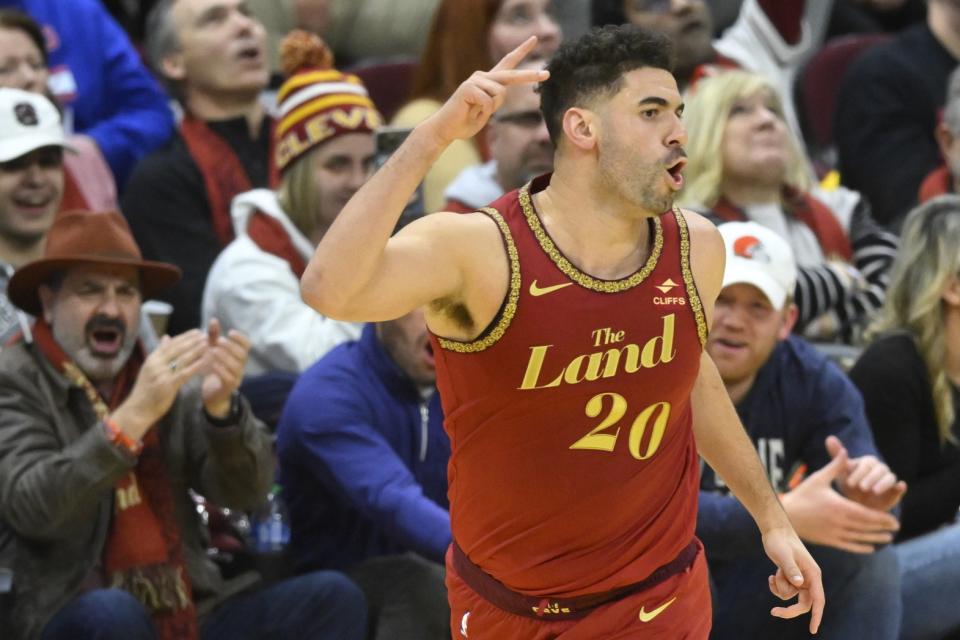
GN: I would love to be in the three-point contest. But at the end of the day, I’m not going to be kicking and screaming if I don’t. It’s a cool thing that the NBA does, and it’s awesome. But at the same time, if I don’t get picked, I’ll be watching. It’s super cool what they do; they’ve done a great job, and they’re constantly mixing it up. So it’s always entertaining.
What do players do during All-Star Weekend that aren’t participating. Do they watch?
GN: I think it’s 50-50. Some do, some don’t. I usually go home and relax, so I’ll probably turn it on and check it out.
Piece of advice to your younger self that you wish you knew?
GN: I think the biggest thing is, if you want something bad enough, continue to show up every single day and just work. Showing up is half the battle, and it takes zero skill to work hard. So, if I could tell my younger self anything, that’s the main thing I would say. There are going to be tough days, days where you feel like you’re not getting better, days where you want to quit and you’re not sure if this is for you. But just continue to push through because I promise you, once you make it through, it’s totally worth it.
Something you learned in the NBA that surprised you?
GN: I think the biggest thing for me was routine. This season is so long that whether I’m feeling good or not feeling great, I’m going to stick to that routine. Over the course of time, you continue to grow and be better as the year goes on. That’s how it has to be because if you go with the ebbs and flows of the emotions in this long season, you’ll eventually stop working or want to work too hard. You have to be consistent throughout the whole year with your work and preparation.
What do you want Georges Niang to be known for?
GN: A winner. I think that’s the biggest thing, always wanting to be looked at as a winner, nothing less. I just want to be a winner.

 Yahoo Sports
Yahoo Sports 
